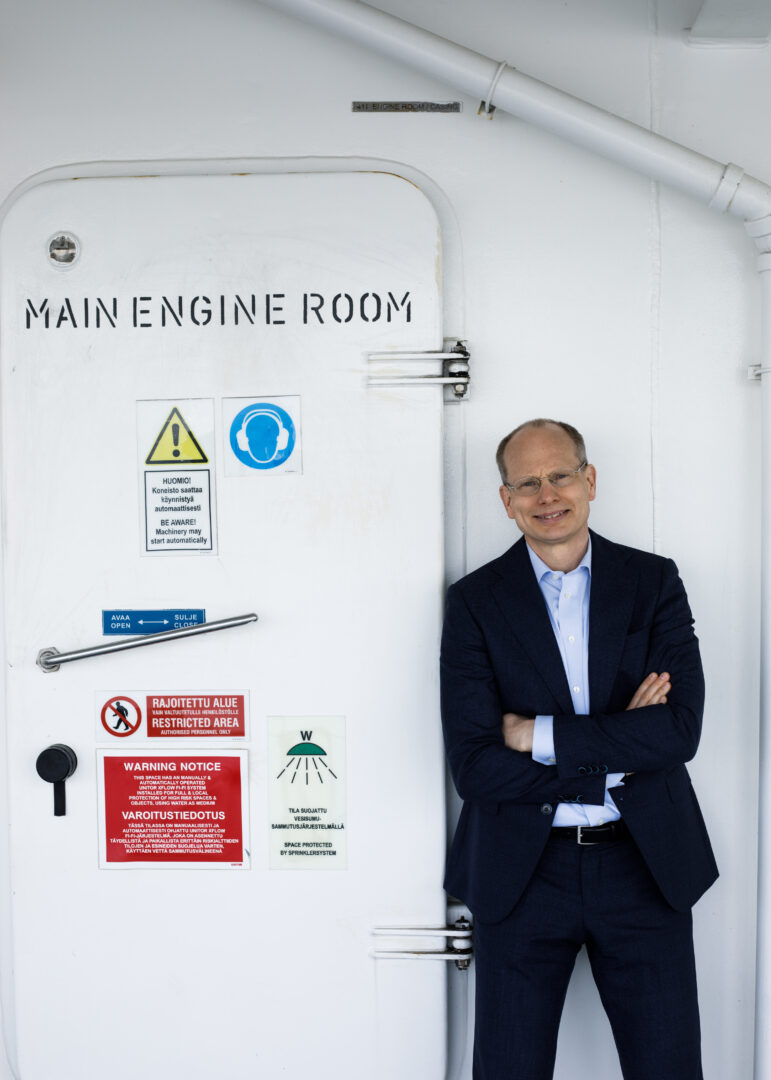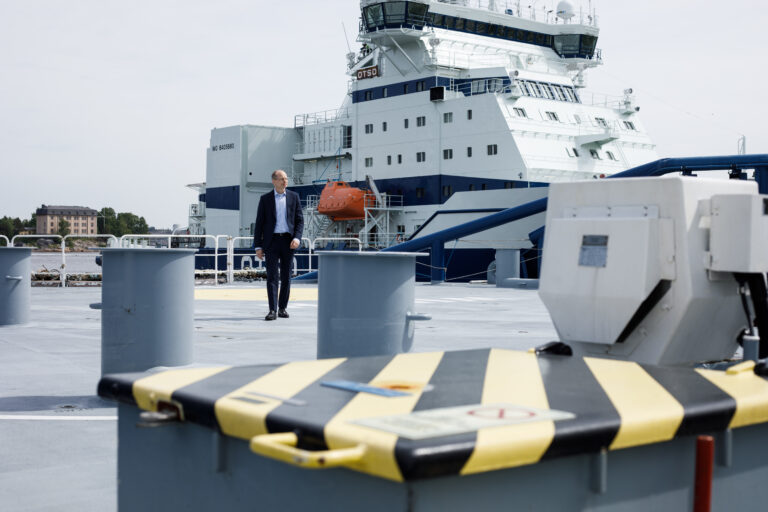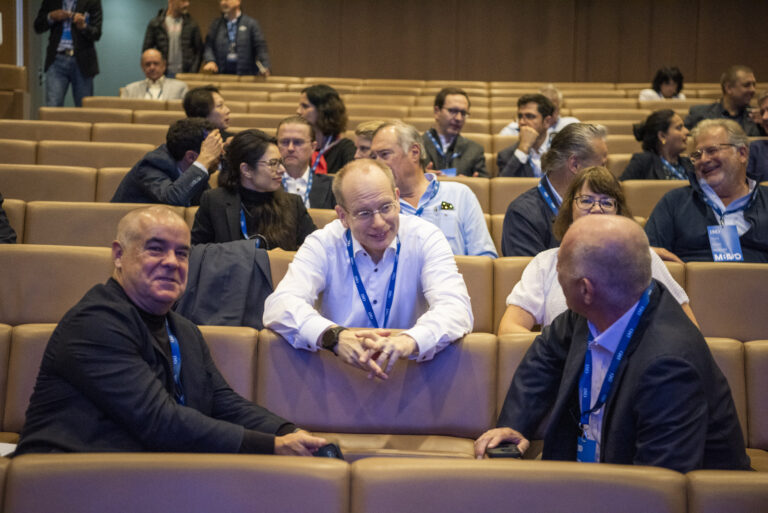
When he was young, Håkan Agnevall was fascinated by technology, keen to understand how it worked. As he grew older, he became equally intrigued by how people function – individually, in teams, and in society. Central to his approach is the core principle that technology needs to serve people and society, and not be pursued as an end in itself. “Technology is an enabler,” he says. “This intersection between technology, people and society. I think that is really what interests me.”
As President and CEO of Wärtsilä Corporation, a global company specializing in sustainable power solutions for the energy and marine sectors, he is in an influential position to enact these principles. In 2023, Wärtsilä was named as one of the 100 most influential companies in the world by TIME for the continuous pursuit and focus on innovation and for shaping the decarbonization of the energy and marine sectors.

An engineer by training, he opted for the MBA at IMD when at a crossroads in his career. He began in technical and operational roles in engineering, sales and project management, but sought to move into general management. At IMD, he appreciated the combination of rigor and practical relevance, the ability to stay current while steering clear of fads, nurturing the confidence to analyze and understand different sectors and business models. He describes the approach as “turning those ideas, and analysis, into action”.
The extent to which you learn, and deliver, through teams, was central: “If I sum up the whole IMD MBA program in just one phrase: it’s all about teams … there was a lot of learning around that for me and also for my colleagues. I think we all moved up the maturity curve during the year that we spent at IMD.”
He recalls a maverick intervention by Stewart Hamilton, the accounting professor who, in response to a case study presentation that Agnevall and his colleagues had delivered, and in which they had taken some pride, stated bluntly that it was the worst presentation he had seen in 20 years, and what was the point of all the color charts and graphs, given that he was color blind?
“If I sum up the whole IMD MBA program in just one phrase: it’s all about teams”
The charismatic Scottish lecturer never missed an opportunity to coach the MBAs on the fundamentals: his intervention was more about the recipients of the talk than its content, instilling the discipline of thinking about who your audience is and not making assumptions about them.
After graduating Agnevall took up posts in consulting, before being appointed to managerial posts at the Swedish-Swiss industrial and hi-tech firm ABB, and the rail transport company Bombardier. In 2013 he was appointed President of Volvo Buses, and led a successful turnaround that involved both improvements of operational processes and investment in clean technologies, in which the company led the way:
“In 2013 we went to one of the major international industry fairs which everybody in public transport was attending. We were exhibiting our first electric buses, while everybody else was exhibiting fossil-fuelled vehicles. I remember people walking around and saying: ‘Volvo, you have lost the plot.’ Some years later the scene had changed completely and when attending a similar fair in 2019 all OEMs were exhibiting electric buses.”

From this post he was a suitable choice as President and CEO at Wärtsilä. In June 2022 the company opened its Sustainable Technology Hub in Vaasa, Finland. The strategy is very much focused on decarbonization. “We are part of a global transition that needs to be carefully planned and coordinated”, he says. “Green is not black or white. You need a gradual transition. You need to blend in the new types of energy, the new types of fuels and gradually increase because it’s a whole ecosystem that needs to evolve. And we are part of that ecosystem.”
New types of clean fuel are just part of the transition. There are also more advanced forms of automation technology that Wärtsilä and others are developing to enhance optimization of systems for energy efficiency.
In the 2020s, Agnevall believes the marine and energy sectors are undergoing their own industrial revolutions. “There will be more things happening in our two industries [energy and marine] in the coming 10 years, than in the previous 30 years,” he says.
“We are part of a global transition that needs to be carefully planned and coordinated”
He has gravitated towards roles that involve change and transformation. These roles have been challenging, yet also very rewarding, geared around mobilizing teams and ensuring technology works to the benefit of people. The fundamental difference between technology and people is that the former is in constant, rapid flux, while human nature stays more stable over the years. The core elements of teamwork remain unchanged: building trust, setting a common direction, leveraging different perspectives and holding yourself accountable in the team.
“This is of course very logical, and at the first glance you could almost say simple. However, I think we all know that it is not always so straightforward. It’s about communication. It’s about commitment. It’s about the people, and it’s about leadership to make it happen.”



